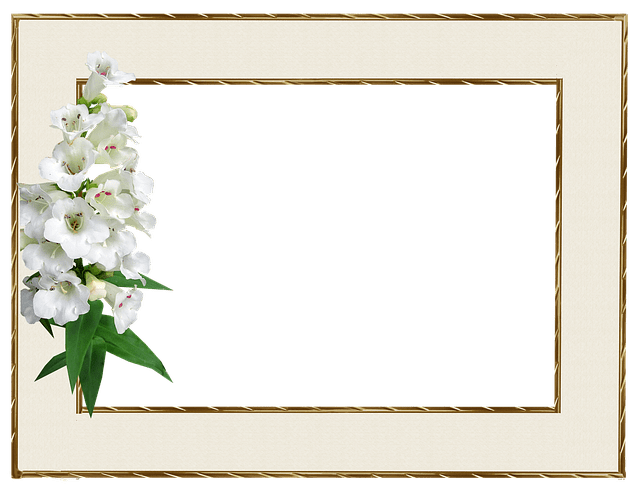How to grow Penstemons
Pensetmon, commonly known as Beardtongue, is a beautiful flowering plant that belongs to the Scrophulariaceae family

In this article:
- Introduction to Penstemons Flower
- Choosing the Right Penstemon Variety
- Climate and Growing Conditions for Penstemons
- Selecting and Preparing the Planting Area
- Propagation Methods for Penstemons
- Planting Penstemons from Seeds
- Growing Penstemons from Cuttings
- Caring for Penstemons in the Garden
- Watering and Fertilizing Penstemons
- Pruning and Deadheading Penstemons
- Common Pests and Diseases of Penstemons
- Troubleshooting Common Issues with Penstemons
- Overwintering Penstemons and Frost Protection
- Penstemons as Container Plants
- Using Penstemons in Landscape Design
- Companion Plants for Penstemons
- Featured Penstemon Varieties and Their Characteristics
- Tips for Extending the Blooming Season of Penstemons
- Harvesting and Preserving Penstemon Flowers
- Enjoying Penstemons Indoors with Flower Arrangements
Introduction to Penstemons Flower
Pensetmon, commonly known as Beardtongue, is a beautiful flowering plant that belongs to the Scrophulariaceae family. This hardy perennial is native to North America and is known for its vibrant and tubular flowers that attract pollinators like bees and hummingbirds.
Choosing the Right Penstemon Variety
With over 250 known species, selecting the right Penstemon variety can be overwhelming. Consider factors such as height, flower color, bloom time, and growing conditions when choosing a Penstemon variety that suits your garden.
Climate and Growing Conditions for Penstemons
Penstemons thrive best in full sun or partial shade. They prefer well-draining soil with average fertility. Knowing the specific climatic needs of your chosen Penstemon variety will help you provide the ideal growing conditions for them.
Selecting and Preparing the Planting Area
Choose a location in your garden with good air circulation and adequate sunlight for planting Penstemons. Prepare the soil by removing weeds, loosening it, and adding organic matter to improve drainage.
Propagation Methods for Penstemons
There are two common methods for propagating Penstemons: planting seeds and growing from cuttings. Both methods have their advantages and require specific techniques.
Planting Penstemons from Seeds
To grow Penstemons from seeds, start by stratifying them in the refrigerator for a few weeks. Sow the seeds in well-draining soil in spring or fall. Provide them with consistent moisture and monitor their growth until they are ready to be transplanted into the garden.
Growing Penstemons from Cuttings
Propagating Penstemons from cuttings is an effective method to reproduce specific characteristics from the parent plant. Take stem cuttings in early summer, treat them with rooting hormone, and plant them in a mix of soil and perlite. Provide them with appropriate care until they establish roots.
Caring for Penstemons in the Garden
Once planted, Penstemons require regular care to thrive. They need watering, fertilizing, pruning, and protection from pests and diseases.
Watering and Fertilizing Penstemons
Penstemons prefer moist but not waterlogged soil. Water them deeply and less frequently to encourage deep root growth. Fertilize them with a balanced slow-release fertilizer during the growing season to promote healthy foliage and abundant blooms.
Pruning and Deadheading Penstemons
Pruning helps maintain the shape and vigor of Penstemons. Cut back the stems in early spring before new growth emerges. Deadheading spent flowers encourages continuous blooming and prevents self-seeding.
Common Pests and Diseases of Penstemons
Although relatively resistant to pests and diseases, Penstemons can be affected by powdery mildew, aphids, slugs, and snails. Regular monitoring and early intervention can help prevent and manage these issues.
Troubleshooting Common Issues with Penstemons
Drooping leaves, yellowing foliage, and poor flowering can be signs of underlying problems with Penstemons. This section provides troubleshooting tips to address common issues and restore the health of your plants.
Overwintering Penstemons and Frost Protection
Penstemons are typically hardy plants, but some varieties may require protection during winter. Proper overwintering techniques, such as mulching and covering, will safeguard the plants from extreme cold and frost damage.
Penstemons as Container Plants
Penstemons can be successfully grown in containers, making them versatile additions to patios, balconies, and small gardens. This section provides tips on selecting the right container, soil mix, and care requirements for potted Penstemons.
Using Penstemons in Landscape Design
The beautiful flowers and attractive foliage of Penstemons make them excellent choices for landscape design. Discover various ways to incorporate Penstemons into your garden, including mixed borders, rock gardens, and wildlife-friendly areas.
Companion Plants for Penstemons
Pairing Penstemons with compatible plants can enhance their beauty and create visually appealing combinations. Explore a list of companion plants that complement and provide beneficial companionship to Penstemons.
Featured Penstemon Varieties and Their Characteristics
This section showcases a selection of popular Penstemon varieties, providing detailed information about their growth habits, flower colors, and unique features. Choose from a range of options to find the perfect Penstemon for your garden.
Tips for Extending the Blooming Season of Penstemons
With proper care and gardening techniques, you can prolong the blooming season of Penstemons and enjoy their flowers for a more extended period. Discover strategies such as deadheading, mulching, and selecting long-blooming varieties.
Harvesting and Preserving Penstemon Flowers
Learn when and how to harvest Penstemon flowers to enjoy their beauty indoors. This section also provides techniques for preserving the flowers, such as air drying and pressing, so you can extend their beauty beyond the gardening season.
Enjoying Penstemons Indoors with Flower Arrangements
Penstemons' colorful blooms can be incorporated into stunning flower arrangements. This section offers tips on selecting complementary flowers and arranging them to create beautiful indoor displays with freshly cut Penstemons.
